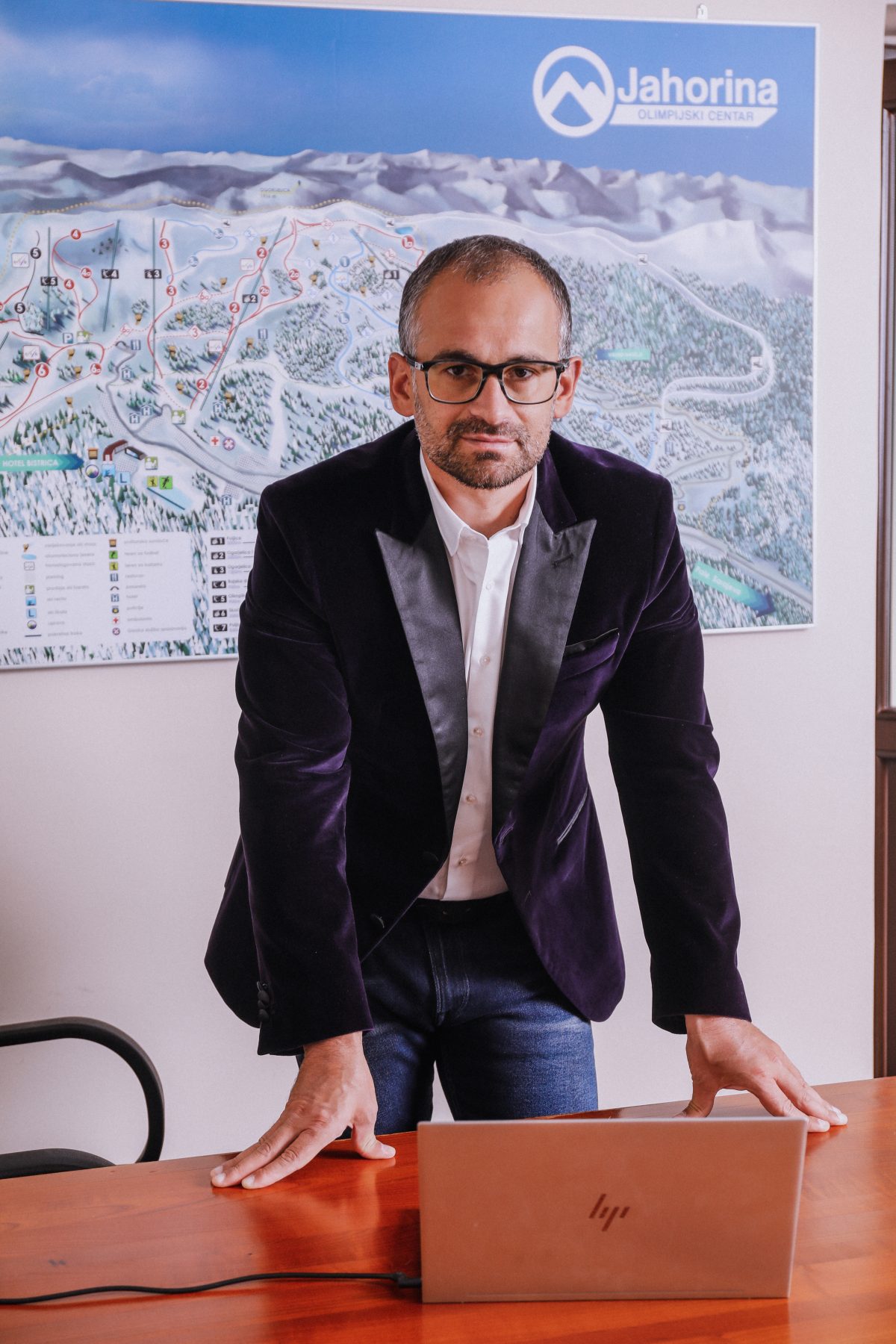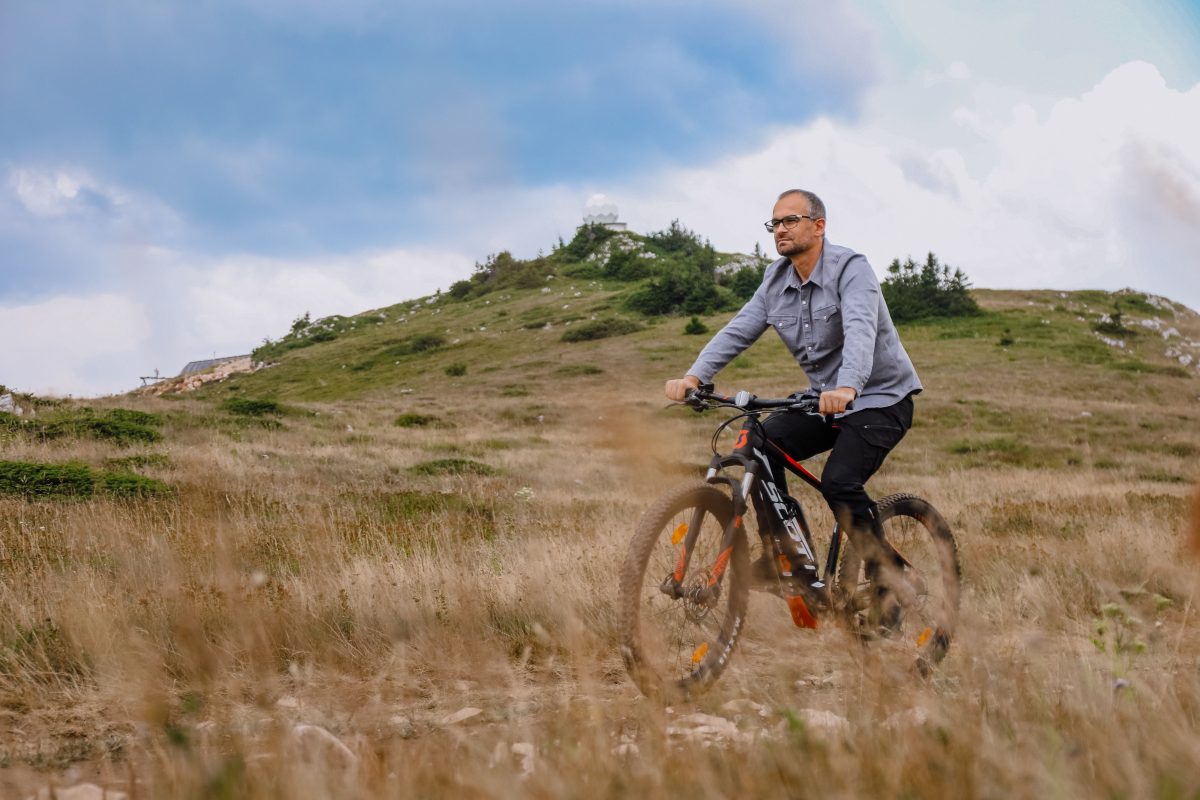Before I was appointed the director of the Jahorina Olympic Centre, I had worked for ten years on the development of ski centres in Serbia, where I learned the trade, so to speak. Together with my team, I adapted and implemented the experience gained on Jahorina, and now we are proud of the fact that we are managing the most modern ski centre in the wider region.

The director of the Jahorina Olympic Centre, Dejan Ljevnaić, a skier and visionary, is the recipient of the top European award – Jubilee Golden Plaque for Lifetime Achievement – and should be credited with making the Jahorina ski resort flourish. He managed to ‘awaken’ the Olympic mountain of Jahorina and position it on the map of European ski centres. Mr Ljevnaić also made a huge contribution to the development of the tourism business in Bosnia and Herzegovina, the region and Europe, and worked on developing friendship and cooperation in order to connect people and countries based on respect. In an interview for Diplomacy&Commerce, he told us what it was like to create the future of skiing in the Balkans and how a ski trip took him to faraway China.
Where and when was your love for skiing born, which you have successfully transformed into successes and great achievements in the last 15 years?
It all started in Rijeka, the city where I was born and lived for some time. After Rijeka, I moved to Belgrade where I continued my studies and where I got involved in the ski business and managed the ski resorts of Kopaonik, all the way to Jahorina. I learned how to ski on Platak where I made my first tentative steps in the snow. I remember that we went to Platak with the Vladimir Gortan Elementary School. It was on Platak that my great love and passion for mountains and skiing was born. Over time, I turned that love into a job that I make a living from and that I truly enjoy.
Before I was appointed the director of the Jahorina Olympic Centre, I had worked for ten years on the development of ski centres in Serbia, where I learned the trade, so to speak. Together with my team, I adapted and implemented the experience gained on Jahorina, and now we are proud of the fact that we are managing the most modern ski centre in the wider region.
Of course, we have invested a lot in know-how and in our engineers because, after all, this is a peculiar activity that not many people do and are knowledgeable about. On the Kopaonik Mountain in Serbia, we built over 17 new ski lifts, we also built the entire Stara Planina ski centre, as well as the Tornik ski resort on Zlatibor and the Divčibare ski centre. We also worked on restoring the Brezovica ski resort. We are currently working in the entire region – on the Popova Šapka in North Macedonia and in almost all ski centres in Montenegro (from Mavrovo, Žabljak and Kolašin to Cmiljača and Mojkovac). We also worked on the Bjelašnica in Bosnia and Herzegovina, on Sljeme in Croatia and almost all ski resorts in Slovenia.
Jahorina is currently a construction hub and you are building more than during the Olympics. A little over 4 years ago, you were appointed the director of the Jahorina Olympic Centre. Have you accomplished at least half of your plans so far?
We have done a lot – on average 20 concurrent projects per year. We did a lot of hard work, had many sleepless nights, but have also successfully implemented projects that are now managed well. I can say that we have done even more than planned. Jahorina has experienced its complete rebirth. Although, there is still room for improvement and I know that things can always be better. We have an abundance of ideas and with the help of our government and our supervisory board, success is guaranteed. We all function as one team and we do everything for the benefit of Jahorina and future generations that will benefit greatly from this project. We can already see the benefits in practice.
You are active on social media to promote skiing and spending time in nature.
Although we are implementing many large-scale projects on Jahorina, our basic motive and goal are to encourage children to love nature and make adults return to nature, because nature is the only inexhaustible source of positive energy. I created social media pages with the goal to show all the natural attractions that I see here every day and to try to motivate people to spend as much time as possible outdoors and in nature.
I came up with the idea to create pages on social networks, and to use this medium, which currently has a huge impact on children and youth, to promote healthy habits, as well as to present the huge natural potential we have, but for educational purposes. Furthermore, I want to create a small encyclopedia about skiing. We have successfully realized the ’Be a child of Jahorina’ campaign and I must say that the interest exceeded all our expectations. Over 2,000 children applied and I am very happy to see this great interest.

Thanks to the years spent in the ski business and a lot of time and effort invested in acquiring knowledge, during your career you were involved in the construction of many ski centres throughout Europe. Is it true that you have now expanded your activities to the Chinese market?
Now, after 15 years of work, and amassing knowledge and experience in the world of ski tourism, I am involved in the Winter Olympics in China, where, together with my partners, I am designing ski slopes, planning and building snowmaking systems and educating and training Chinese skiers.
My cooperation with China began four years ago. Namely, as a bourgeois sport, skiing has not been popular among the Chinese throughout history. However, when they won the bid to hold the Olympics, i.e. when it was announced that Beijing would host the Winter Olympic Games, China decided that they must build ski resorts, have 200 million skiers and encourage the population to practise this sport by 2022. In the run-up to the Games, 47 ski resorts are currently being built in China, and in addition to infrastructure, they are investing heavily in the development and promotion of skiing as a sport, with their athletes training around the world. Some are also training on Jahorina and Bjelašnica. Until now, China did not have an artificial snow system, nor cable cars. Now, they are building a complete infrastructure, which is a big thing for them and for the development of skiing in the country which is the largest market in the world due to the sheer size of its population.
Skiing is developing rapidly in China, and in addition to the Chinese investing heavily in ski infrastructure, they are also investing in the training of professional skiers. Thus, two years ago, more than 150 skiers were accommodated on Jahorina and Bjelašnica, where they trained and prepared for the Olympic Games. They were extremely satisfied with the conditions and expressed their desire to visit Jahorina again. This visit allowed us to present our new investments, which have now been successfully implemented.
One of the greatest recognitions
You have received many awards during your career and very few people know that you are a member of the prestigious Shanghai Ski Club?
One of my biggest accolades is being nominated for a member of the Shanghai Ski Club which was founded ahead of the Winter Olympics to connect the Alps and China. I am now the club member, along with some of the biggest names in the ski world such as Erich Gummerer, owner of TechnoAlpin, who invented and launched the artificial snow system, Austrian Olympic skiers such as Hermann Maier and Marc Girardelli and Michael Doppelmayr, owner of the largest cable car manufacturing company in the world. It is a great honour to find myself in this environment and I am happy because my work and achievements are recognized and appreciated in the world.